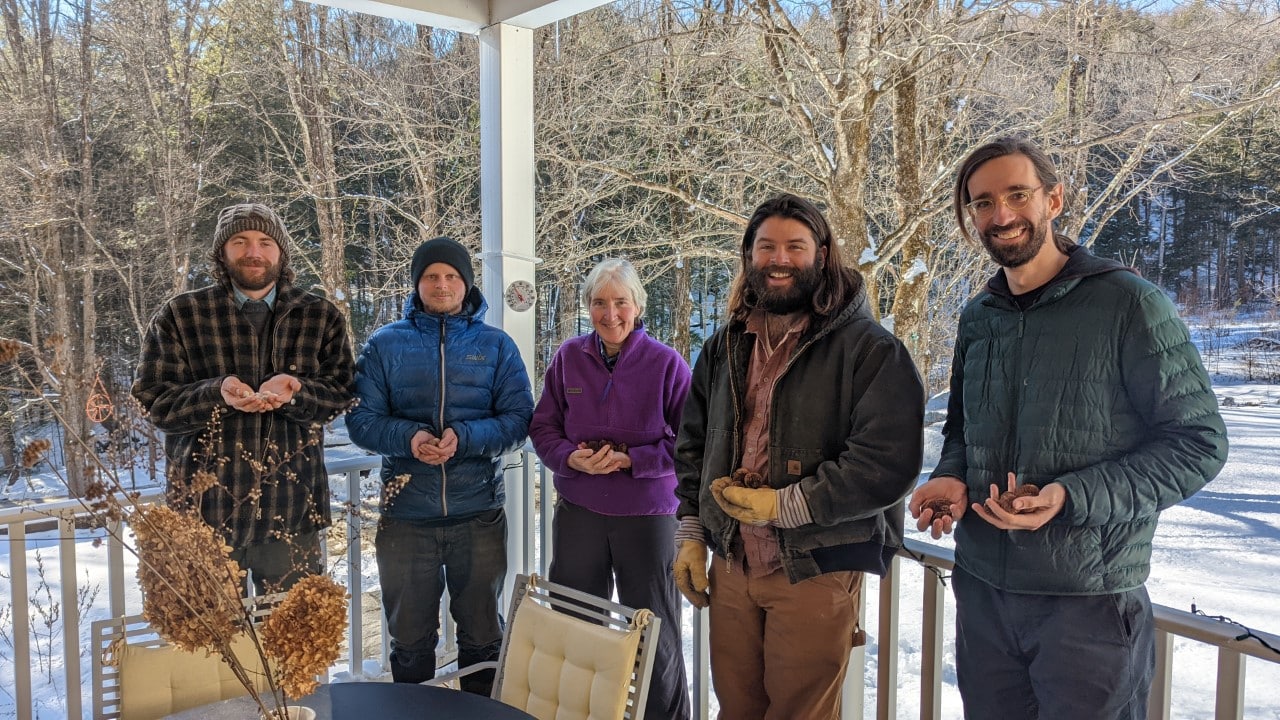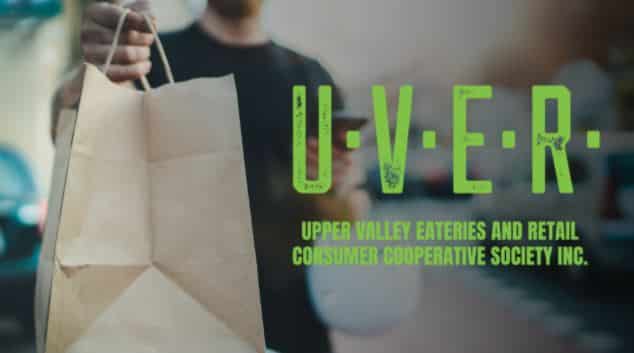February 10, 2022
In January, Vermont Law School celebrated two years of the Vermont Legal Food Hub. Launched in 2020, VLS’s Center for Agriculture and Food Systems operates the program in partnership with the Conservation Law Foundation.
The hub connects income-eligible farmers, food entrepreneurs, and related organizations with attorneys willing to provide free legal assistance. Since it launched two years ago, students, faculty, and staff in CAFS’s Food and Agriculture Clinic have been fielding requests from Vermont’s farm and food community and placing cases with local attorneys in the network. The results so far are impressive: Participants have saved more than $103,270 in legal fees, leveraging more than 473 hours of pro bono legal services. 21 cases have been resolved, while more than a dozen are in the works.
“We have seen tremendous interest since launching in 2020 and are so pleased to have been able to meet the demand because of our incredible attorney network,” said Vermont Legal Food Hub program coordinator Whitney Shields. “While COVID-19 slowed down so many programs, we were able to function at full capacity due to the generosity of our volunteer attorneys.”
We caught up with some of the hub’s clients from the past year to learn more about the legal issues they faced and how hub attorneys pitched in to help.
Supporting Women-Led Latinx Food Collective
Viva El Sabor is a women-led collective dedicated to introducing the food and culture of Mexico and Central America to Vermont and promoting community and economic justice for its members. A dozen or so cooks from Mexico and Guatemala—many of whom have been cooking for the local farmworker community for years—launched the collective in summer of 2021 with a pop-up dinner featuring tamales, tacos, and gorditas in Middlebury. As requests poured in for catering gigs following the successful launch, members looked to expand the business. They contacted the Vermont Legal Food Hub for an attorney’s guidance.
Attorney Drew Kervick of firm Dunkiel Saunders consulted with the collective on various legal aspects of business development—from filing an LLC with the Secretary of State, to drafting an operating agreement outlining the roles of the owner and others involved in operating the business. Some Viva El Sabor members are now fully established, registered, and permitted for home-based catering. “Drew produced well-drafted documents and was quick to follow up and respond to questions,” said Elizabeth Ready, who works with the women of Viva El Sabor. “We hope he and his firm will continue to help if business-related questions come up in the future.”
Building a Local Tree Nut Value Chain
Many of the trees covering Vermont’s heavily forested landscape boast nuts for growers and foragers to harvest. And those nuts can be turned into culinary oils, flours, nut meats, and more—if producers can access the right machinery to process them. That’s where Vermont Tree Nut Processors, LLC comes in. Newly established in 2021 with support from the Vermont Agency of Agriculture, Food, and Markets, and the Vermont Specialty Crop Block Grant Program, the business aims to grow the market for locally produced tree nut products by providing shared processing equipment for producers—and ultimately, promote sustainable, perennial, and local sources of food to build food sovereignty in the state.
The company consulted the Vermont Legal Food Hub with two goals: gathering information about the best business structure to form, and then creating the legal documents needed to implement it. The hub placed the case in Vermont Law School’s Food and Agriculture Clinic, where student Andie Parnell JD’22 worked on it under close supervision of Sophia Kruszewski, Food and Agriculture Clinic director. “Working with the Food and Agriculture Clinic accomplished both of our goals,” said Vermont Tree Nut Processors administrative manager Tina Barney. “The clinic legal team was responsive, transparent, and patient in explaining the legalese. We learned about the complexities and constraints of forming a cooperative in Vermont, and ultimately decided to go with an LLC that could eventually function a bit like a co-op. I would highly recommend the Legal Food Hub to other food-related startups.”
Working with the nut processing group to achieve their goals for a collaborative structure also provided a VLS student with an invaluable learning opportunity. “I learned so much about how the law applies to farm and food businesses through this experience,” said Parnell. “It was so incredible to apply what I’ve learned in classes to help solve a real client’s problem.”
Boosting Restaurant Resilience During COVID-19
As COVID-19 forced restaurant closures and shuttered sidewalk patios in the winter of 2021, local nonprofit Vital Communities sought a way to support local food purveyors. The organization—which cultivates the civic, environmental, and economic vitality of New Hampshire and Vermont’s Upper Valley region—began working with restaurant owners to organize a cooperative food delivery system. The idea was to pilot the program in Hanover, New Hampshire, and then expand the model to other nearby communities, eventually providing delivery capacity for farms and retail stores.
“The biggest sticking point to launching the delivery cooperative was figuring out which legal entity would be best,” said Nancy LaRowe, the organization’s food and farm coordinator. So they reached out to the Vermont Legal Food Hub, which connected them with attorney Nate Stearns of firm Sheehey Furlong & Behm. Stearns helped the group set up an LLC so they could quickly launch the project.
Ultimately the group decided to become a consumer cooperative, which LaRowe says “aligns more closely with the mission of this innovative solution to a local food economy challenge.” The new cooperative, Upper Valley Eateries and Retail (UVER), is now connecting locals with delivery from restaurants throughout Hanover, Lebanon, and White River Junction.
“Farms and food businesses are so integral to what makes Vermont special,” said Sophia Kruszewski, Food & Agriculture Clinic director. “We are proud and honored to be able to play a part in supporting them through the hub and in our clinic.”
The Vermont Legal Food Hub is currently recruiting additional attorneys and accepting applications for legal assistance from Vermont farmers, food entrepreneurs, and related organizations. For more information, visit legalfoodhub.org and submit an intake form, or contact Whitney Shields, program coordinator, at legalhub@vermontlaw.edu or 802-831-1307.


